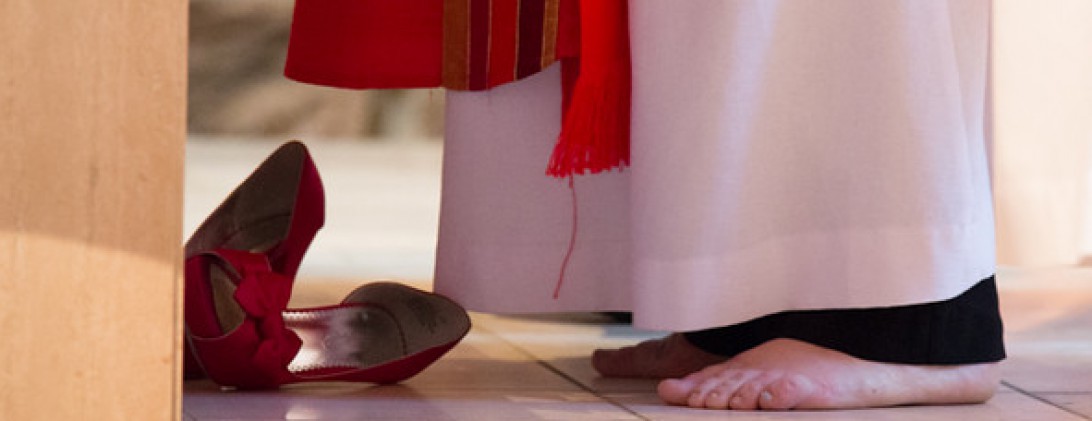
It’s been so long–it’s hard to finally pull the trigger and sit down and write. Writing is, after all, such a discipline. But it’s Christmas Eve, and for better or worse, I think the sermon is done. I’ll probably edit it a few more times, look for a few different adjectives, but all in all, it’s done. And Christmas Day’s sermon is in my head, trusting that the words will tumble out of my mouth at the right time and place. Presents? Wrapped. Breakfast? Eaten. Coffee? Hot. So what’s left to do but write?
This year I started a Wednesday night Contemplative Eucharist–i.e. one that has less talk and a lot of silence (which for those who know me, know that means a great big challenge). And it’s been a wonderful experience. All these people are coming (17, which doesn’t sound big, but let me tell you, for a church with 80 people on Sunday, that’s a good number). Some of them are regular Sunday folk, but some, I daresay, most are people who I’ve never seen on a Sunday morning. People who have snuck in the door, hoping to be anonymous, looking, I suspect for a little space, a little quiet, a little light in the darkness.
One of the best features of our church is our ability to play with light and dark. The lights are set so low that you can barely read the text, yet somehow we do. And in that darkness are candles and incense and chants. And then there is the Eucharistic prayer itself. My favorite, the one I use most of the time is from Iona. There are tweeks that my liturgical inner-geek has to do to make it appropriate, but on the whole, it’s a gorgeous piece of work, playing with the mystery of Christ and the incarnation. Perhaps my favorite part of the prayer is the bidding prayer which goes something like this:
So come to this table
You who have much faith and you who would like to have have more
You who have been to this sacrament often and you who have not been in a long time
You who have tried to follow Christ and you who have failed.
Come. It is Christ who invites us to meet him here.
Perhaps more than anything, this prayer has shaped my year. The constant reminder that Christ calls us and at the same time Christ meets us right where we are, full of faith, full of doubt, full of hope, full of despair, or, like many of us, a lovely blend of it all–the beauty and tenderness of the human condition. Luther said that Christmas is for children and Easter is for adults and I understand that. But I think that he was off a bit. Christmas, for adults, allows us to remember the mystery of Christ coming close to us and us coming close to Christ (a line borrowed from that Eucharistic prayer, by the way). Christ comes close in the form of a baby, Christ comes close in a form that we both adore and fear. For what parent hasn’t shaken, just a little bit, with the realization of what parenthood means, what care it calls for? And yet, in that crib, lies the hope of all humanity, the hope of innocence, the hope of new beginnings, the hope of goodness that all babies have. And the mystery of what the tableau all means. Beyond the pageants, beyond the carols, beyond the presents and the tree, there is the hope of an irrational, wild love that descends, ready or not, for us.
A joyful Christmas tide to all. In the new year I promise to try and be more faithful. In the mean time, I’ll leave you with this, my favorite set of words for this season, from Madeline L’Engle:
This is the irrational season/ When love blooms bright and wild/ For if Mary had been filled with reason/ There’d have been no room for the child.
PS: Photo credit: me! This is taken in Palestine at the Church of the Resurrection (also known as Holy Sepulcher), outside of the chapel of the empty tomb. The photo serves as the image used with our Contemplative Eucharist.
